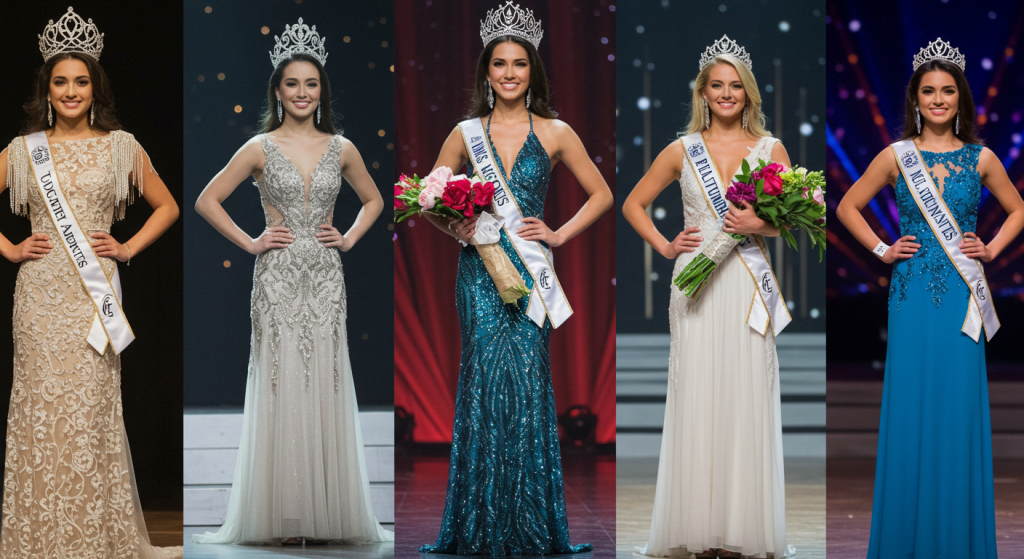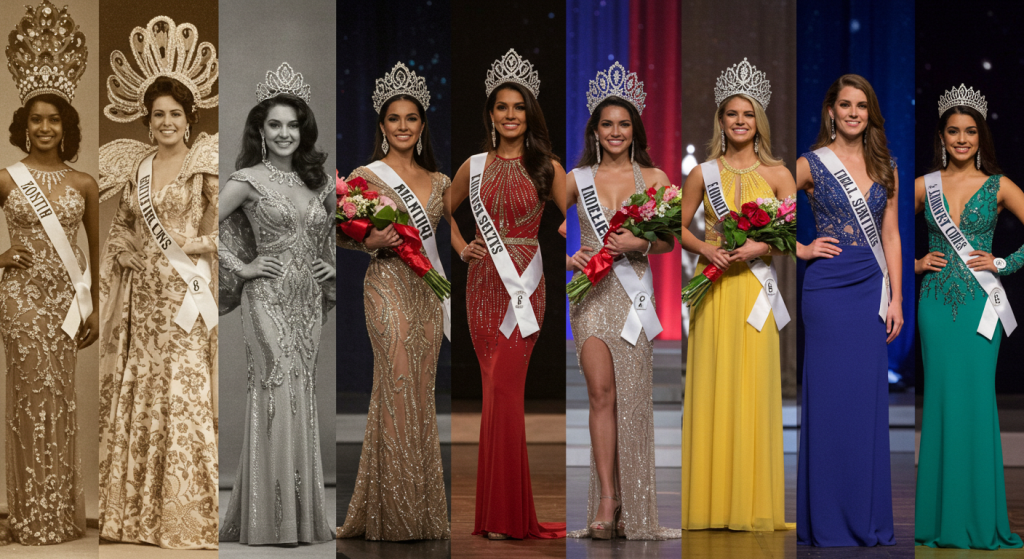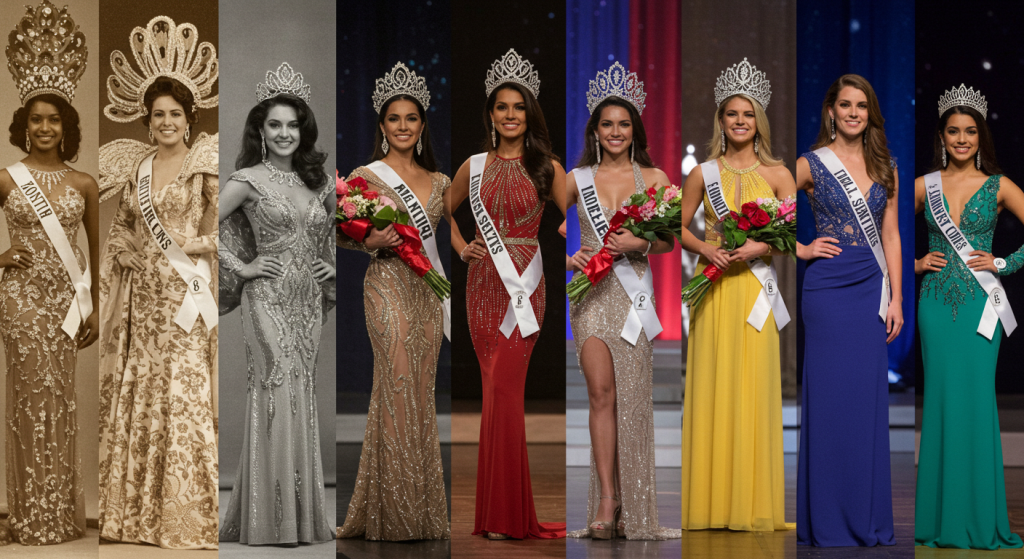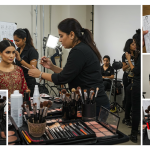Beauty pageants have long been a part of global culture, often associated with glamour, grace, and competition. But over the decades, these events have undergone a significant transformation. What once focused almost solely on physical appearance has gradually shifted toward celebrating intelligence, purpose, diversity, and empowerment.
Thank you for reading this post, don't forget to subscribe!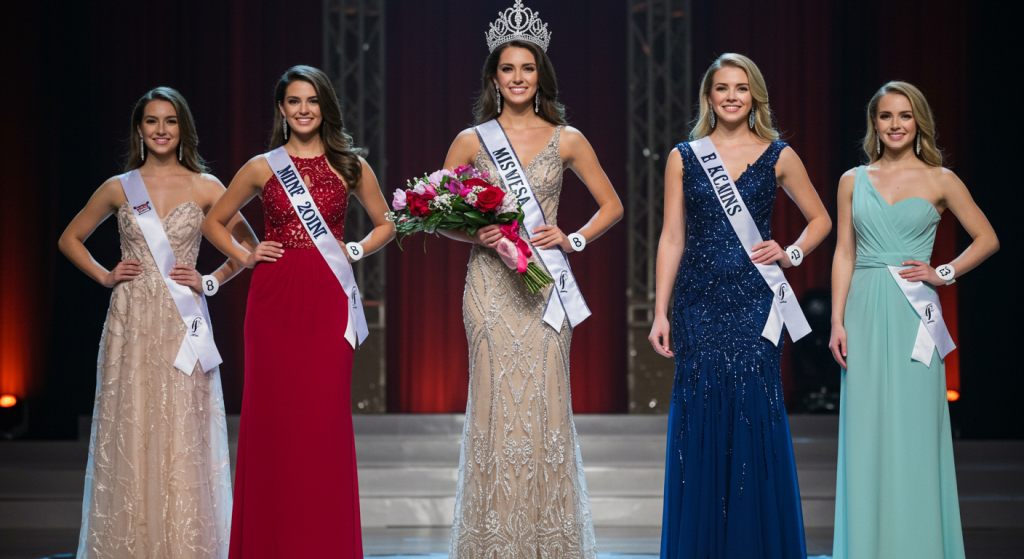
A Glimpse into the Past
The earliest modern beauty pageants began in the late 19th and early 20th centuries, often held as entertainment or marketing events. By the 1950s and ’60s, pageants like Miss America and Miss Universe gained massive popularity. These shows, while elegant, reflected narrow beauty standards—favoring a specific body type, skin tone, and traditional femininity.
Contestants were judged primarily on appearance, poise, and charm. Talent and interview rounds existed, but they were often secondary to physical beauty. Women in these competitions were expected to represent an idealized image of perfection.
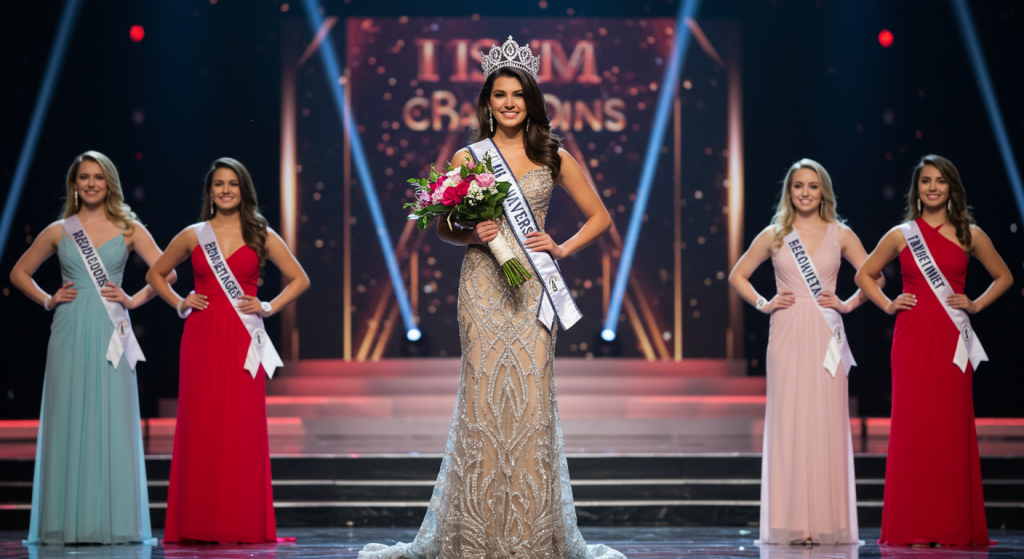
The Turning Point
By the 1970s and ’80s, as feminist movements gained strength, beauty pageants came under criticism. Activists questioned the objectification of women and the lack of inclusivity. Some pageants responded with reform—introducing scholarship awards, emphasizing talent and intellect, and gradually updating judging criteria.
In the 2000s, these shifts became more pronounced. Pageants began promoting women’s stories, social impact projects, and educational achievements. The focus started to move from “how you look” to “what you stand for.”
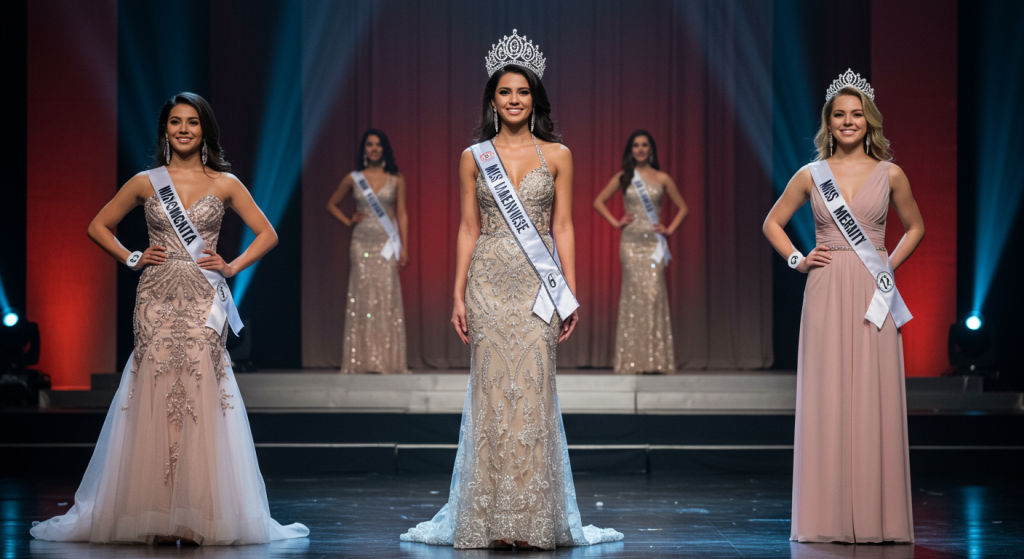
Empowerment in the Modern Era
Today, beauty pageants are increasingly platforms for empowerment. Many encourage advocacy work, leadership, and public speaking. Contestants are often involved in charities, community work, and social campaigns. They use the stage not just to shine, but to share messages on mental health, environmental issues, education, and equality.
Inclusivity has also taken center stage. More pageants are welcoming participants of different body types, ethnicities, and gender identities. The rise of plus-size pageants, pageants for women with disabilities, and trans-inclusive competitions marks a significant step toward breaking outdated standards.
Notably, some events have removed swimsuit segments altogether, focusing instead on confidence, character, and contribution.

Why Pageants Still Matter
While some still see pageants as outdated, many recognize their evolving role as a space for self-growth, empowerment, and global representation. They offer scholarships, open doors to careers in media, activism, and leadership, and give individuals a global voice.
Beauty pageants today are no longer just about crowns—they’re about courage, confidence, and creating change.
